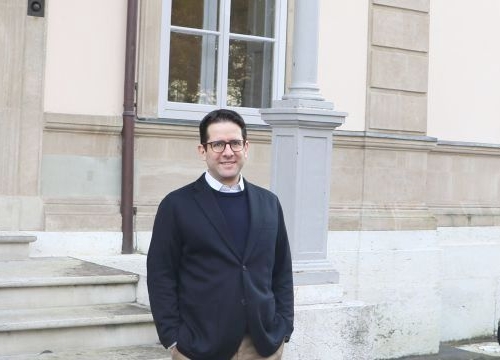Our New Visiting Fellow: Alexandre Zielinsky Arregui


Geneva Academy
13 January 2020
Alexandre Zielinsky Arregui is an independent legal advisor and international legal counsel collaborating with different law firms in Switzerland, Brazil, Argentina, Mexico, India and China, focusing on private clients and philanthropy.
Alexandre started his career as a corporate litigation lawyer in Brazil, transitioning later to human rights where he worked on pro bono cases for Brazilian law firms and trained the police force of the city of Porto Alegre on human rights. He then moved to Geneva where he worked for the International Commission of Jurists’ programme on business and human rights and for the Association for the Prevention of Torture where he trained Latin American defensores del pueblo on the Optional Protocol to the United Nations Convention against Torture. Having worked for several years in the financial industry in Switzerland, he advised Latin American affluent families on their succession planning and philanthropic aspirations.
Alexandre just started as Visiting Fellow at the Geneva Academy and will stay with us until the end of March 2020.
What Motivated you to Carry out a Fellowship at the Geneva Academy?
The Geneva Academy offers the opportunity to interact with leading academics on issues that are of interest to my research topics, which include economic, social and cultural rights, human rights and international criminal justice.
After many years away from academia, the Geneva Academy provides the best immersion on these topics with researchers from different sectors and professional experiences who will enrich my research with important inputs.
What Will Be the Focus of your Research during this Fellowship?
My research focuses on the intersection of business and human rights and the finance industry. More specifically, I am investigating how stolen and looted cultural objects from conflict zones, or objects that have been hidden as spoils of wars, find their way into the mainstream international art and antique market via the regulated financial markets.
Consequently, my research will address how and to what extent these actors may be held accountable for human rights violations from different perspectives of the human rights frameworks.
Why are these Issues Important?
Besides issues linked to the legal frameworks related to anti-money laundering regulations and terrorism financing, there is today a lack of understanding from the private sector, and specifically from the financial industry, on human rights and any matters that could be related to human rights violations.
There are, at the same time, within the art and antiques international markets, criminal organizations that precisely use the regulated financial market because of this lack of awareness and corporate culture to understand and assess situations where there could be signs of human rights violations, hidden or disguised.
What Will be the Impact of this Research?
It is my goal to reach different actors within the financial sector and design (at least draft) a framework to raise awareness, within the corporate finance world, about the methodology of business and human rights and how it could have a positive impact for corporations and ultimately decrease the chances that disguised criminal activity occur using the financial market.
What Do you Expect from your Time at the Geneva Academy?
I expect to reach out to researchers with other fields of expertise that are interlinked to my research topic, and exchange with them about how elements of these assessments could contribute to the missing gaps I will face during my interaction with the private sector.
But most importantly, I hope to benefit from unparalleled feedback and critics from the community at the Geneva Academy.







